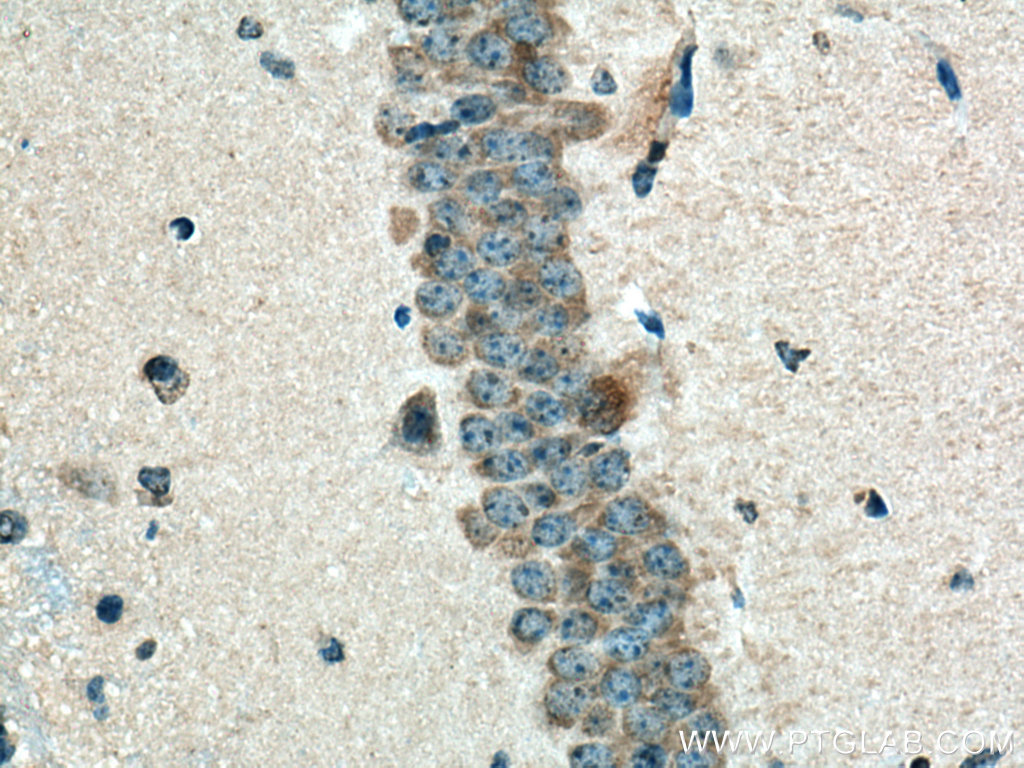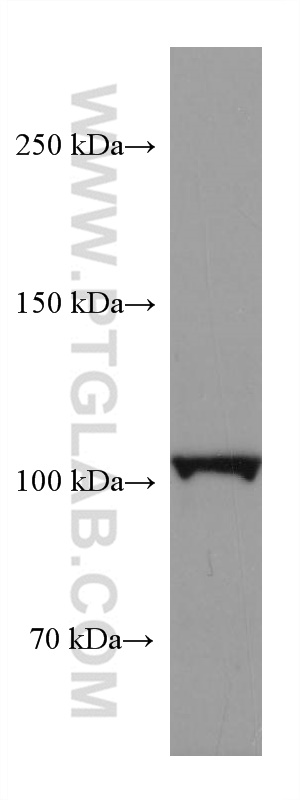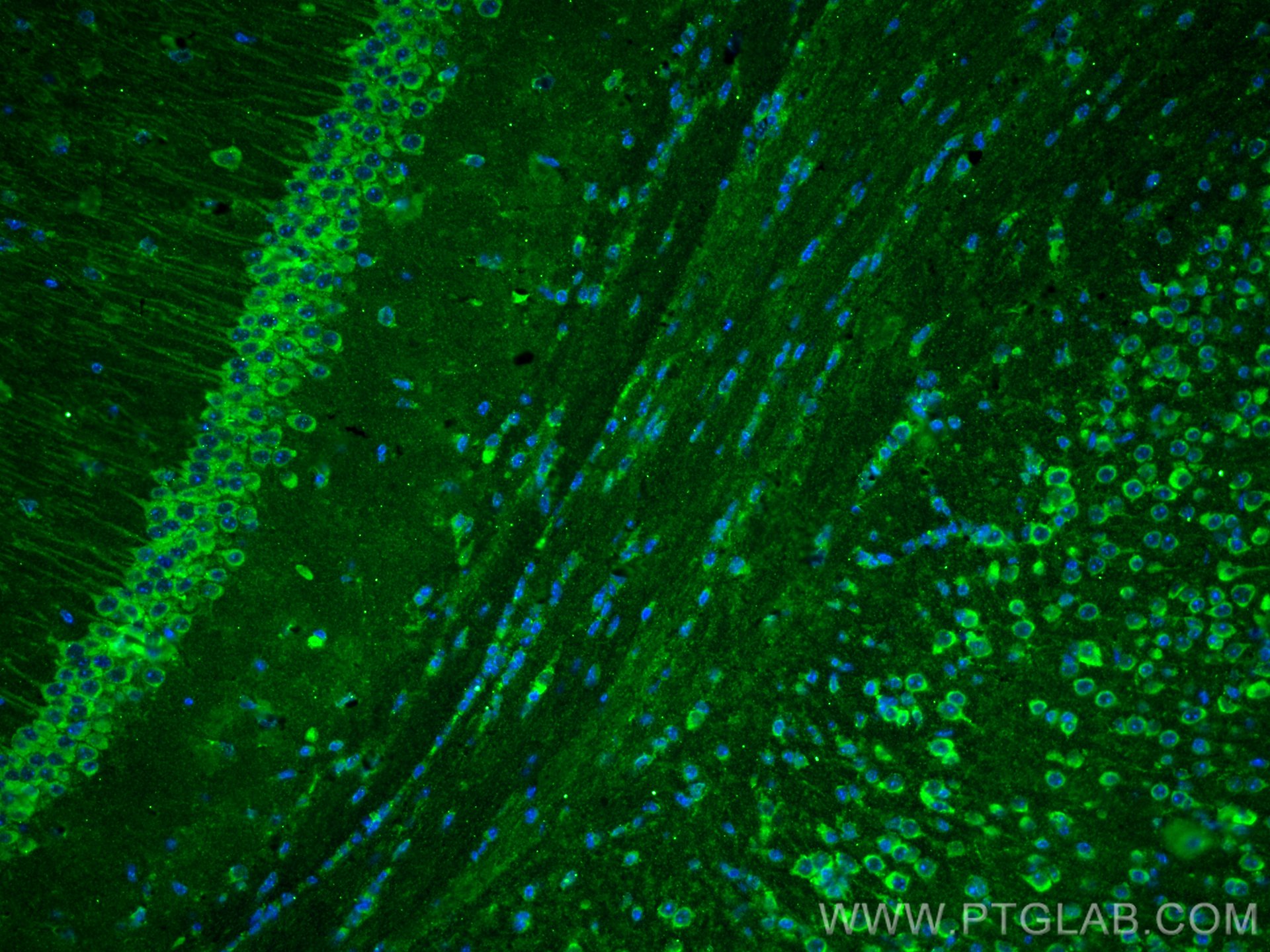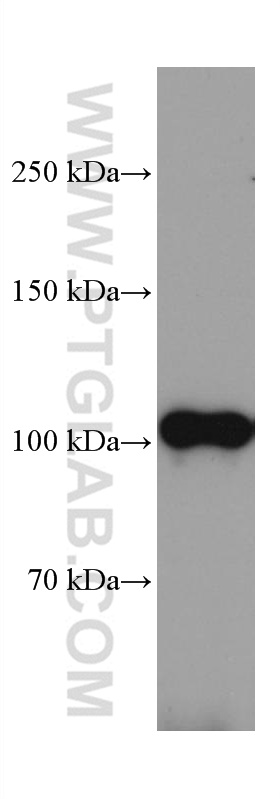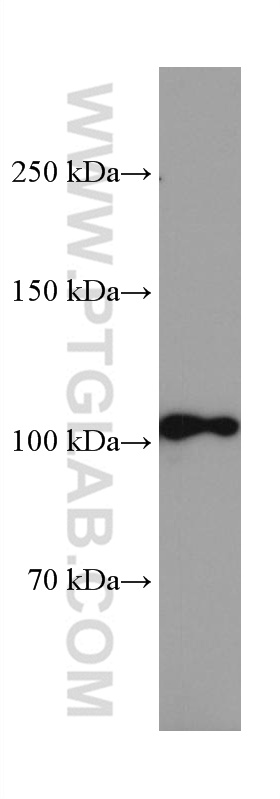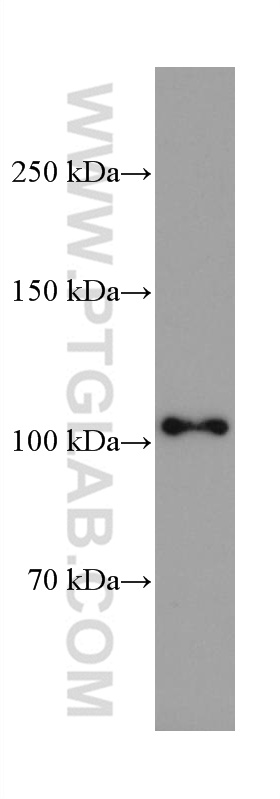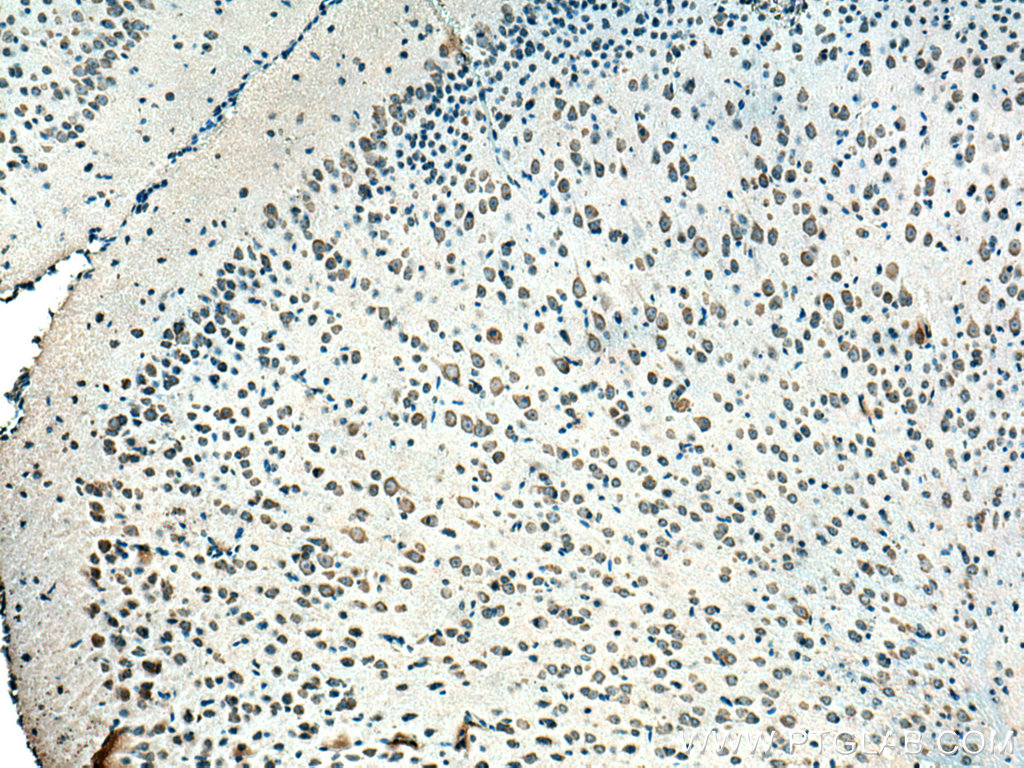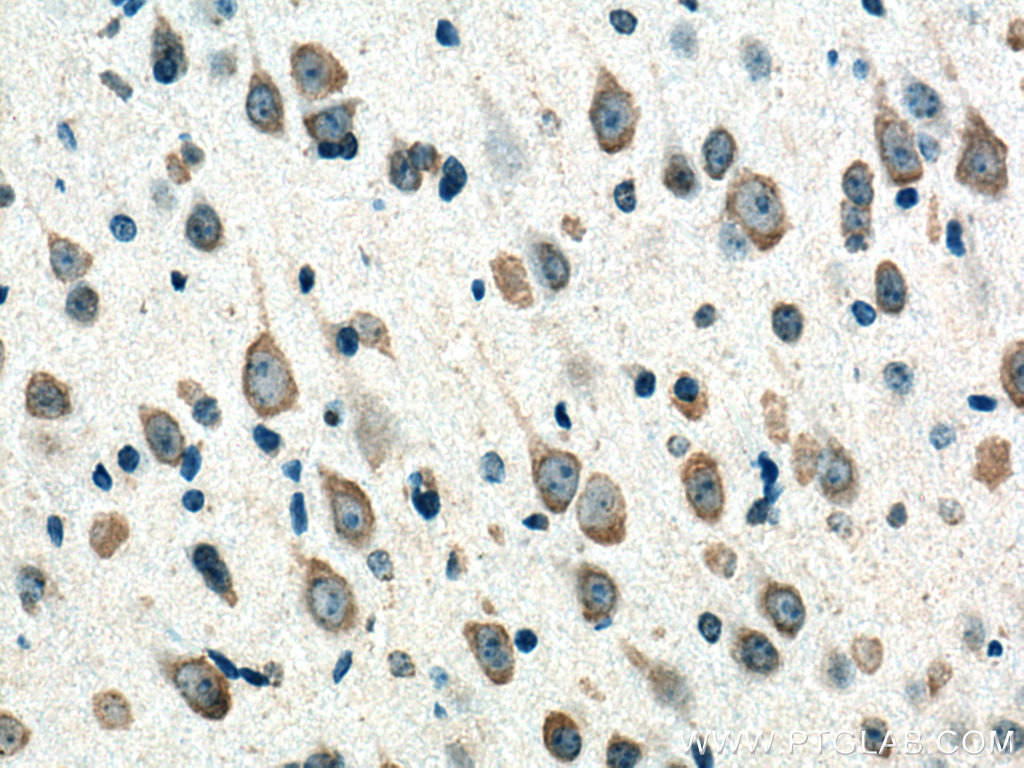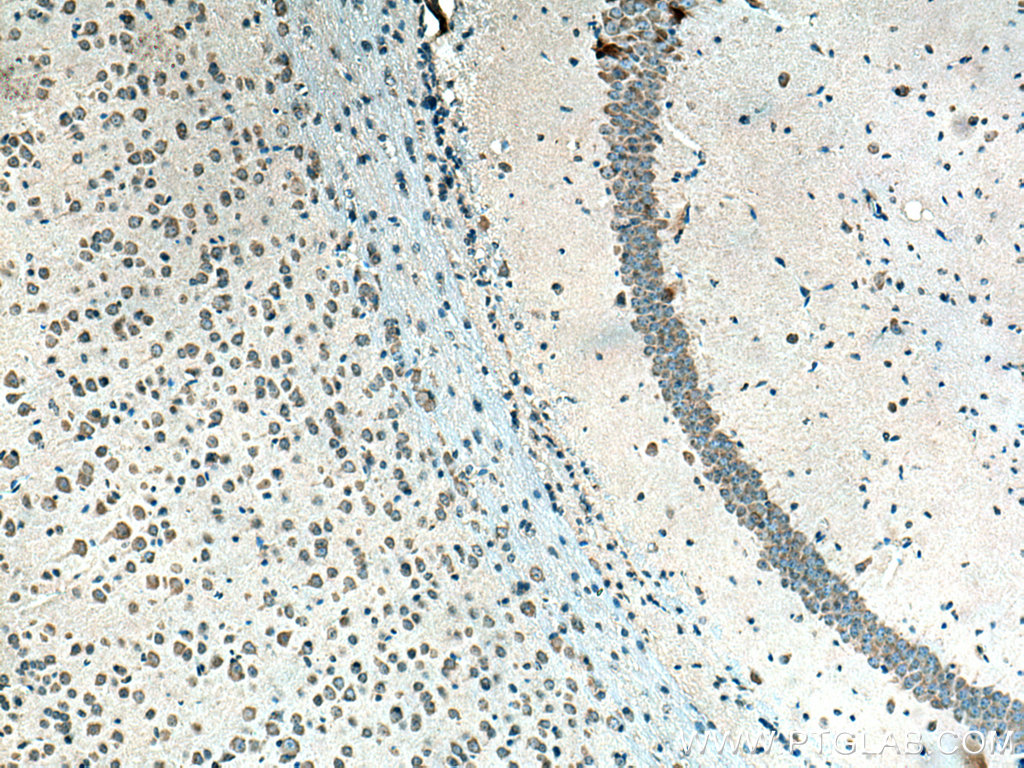验证数据展示
经过测试的应用
| Positive WB detected in | pig brain tissue, pig cerebellum tissue, pig spinal cord tissue |
| Positive IHC detected in | mouse brain tissue Note: suggested antigen retrieval with TE buffer pH 9.0; (*) Alternatively, antigen retrieval may be performed with citrate buffer pH 6.0 |
| Positive IF-P detected in | mouse brain tissue |
推荐稀释比
| 应用 | 推荐稀释比 |
|---|---|
| Western Blot (WB) | WB : 1:500-1:2000 |
| Immunohistochemistry (IHC) | IHC : 1:50-1:500 |
| Immunofluorescence (IF)-P | IF-P : 1:200-1:800 |
| It is recommended that this reagent should be titrated in each testing system to obtain optimal results. | |
| Sample-dependent, Check data in validation data gallery. | |
产品信息
67089-1-Ig targets CNTN2 in WB, IHC, IF-P, ELISA applications and shows reactivity with Human, pig, mouse samples.
| 经测试应用 | WB, IHC, IF-P, ELISA Application Description |
| 经测试反应性 | Human, pig, mouse |
| 免疫原 | CNTN2 fusion protein Ag28301 种属同源性预测 |
| 宿主/亚型 | Mouse / IgG2b |
| 抗体类别 | Monoclonal |
| 产品类型 | Antibody |
| 全称 | contactin 2 (axonal) |
| 别名 | Axonal glycoprotein TAG 1, Axonin 1, AXT, CNTN2, Contactin 2, contactin 2 (axonal), DKFZp781D102, FLJ42746, TAG 1, TAG1, TAX, TAX 1, TAX1 |
| 计算分子量 | 113 kDa |
| 观测分子量 | 113-135 kDa |
| GenBank蛋白编号 | NM_005076 |
| 基因名称 | CNTN2 |
| Gene ID (NCBI) | 6900 |
| RRID | AB_2918481 |
| 偶联类型 | Unconjugated |
| 形式 | Liquid |
| 纯化方式 | Protein A purification |
| UNIPROT ID | Q02246 |
| 储存缓冲液 | PBS with 0.02% sodium azide and 50% glycerol , pH 7.3 |
| 储存条件 | Store at -20°C. Aliquoting is unnecessary for -20oC storage. |
实验方案
| Product Specific Protocols | |
|---|---|
| WB protocol for CNTN2 antibody 67089-1-Ig | Download protocol |
| IHC protocol for CNTN2 antibody 67089-1-Ig | Download protocol |
| IF protocol for CNTN2 antibody 67089-1-Ig | Download protocol |
| Standard Protocols | |
|---|---|
| Click here to view our Standard Protocols |
